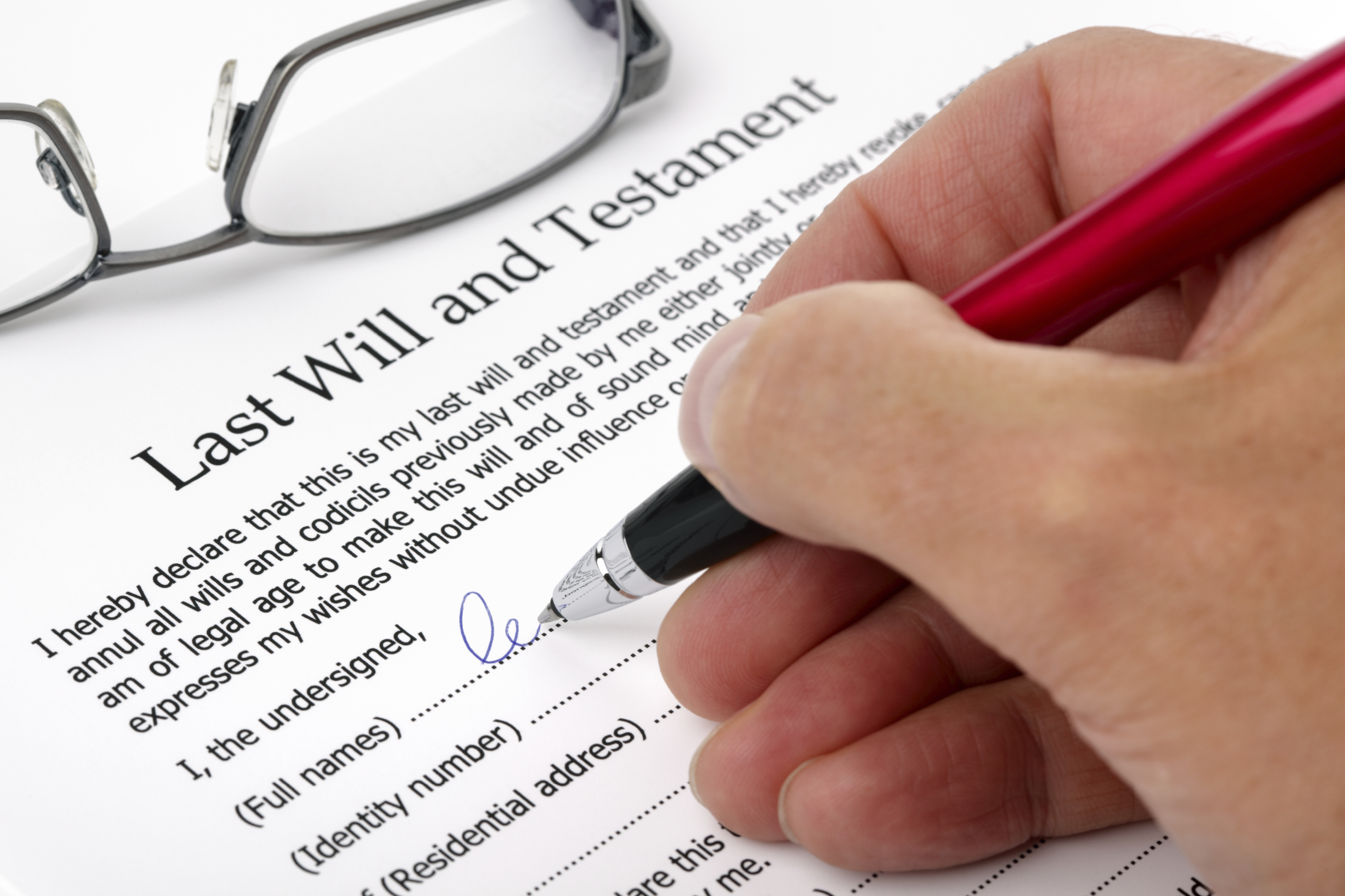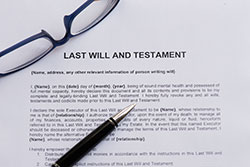|
Monday, March 28, 2016
 There are different types of commercial leases, such as gross leases, modified gross leases and net leases. One variation of the net lease is a “triple net” lease, in which the tenant is liable for a net amount of property taxes, insurance and common area maintenance relating to the property they are possessing. Most of the time, additional fees in the form of common area maintenance expenses come up in the context of a triple net lease. Landlords ask tenants to pay these fees so that they contribute to the cost of maintaining common areas such as entranceways, walkways, parking lots and hallways, as well as services enjoyed by the tenant such as janitors, security and landscapers. These fees are in addition to a rental payment and can be substantial depending upon the situation. There are different types of commercial leases, such as gross leases, modified gross leases and net leases. One variation of the net lease is a “triple net” lease, in which the tenant is liable for a net amount of property taxes, insurance and common area maintenance relating to the property they are possessing. Most of the time, additional fees in the form of common area maintenance expenses come up in the context of a triple net lease. Landlords ask tenants to pay these fees so that they contribute to the cost of maintaining common areas such as entranceways, walkways, parking lots and hallways, as well as services enjoyed by the tenant such as janitors, security and landscapers. These fees are in addition to a rental payment and can be substantial depending upon the situation.
It is essential that a business owner be informed about the terms of the lease they are entering into, especially if these terms have the potential to cost them money. As common area expenses can be a significant cost they are often controversial and hotly negotiated. Most of the disagreements over these terms relate to the distinction between costs for the maintenance of common areas and expenses that are primarily the landlord’s responsibility. Generally, the test is who will benefit most from the expense, the tenant or the landlord. For example, it can be argued that tenants should not be paying for improvements that are being done to increase the value of the property as the landlord will be the primary beneficiary of these improvements.
When negotiating common area expenses, the business owner should inquire as to the purpose of the payments. They should also ask whether they will be able to review what the money is being spent on at any given time. Business owners should seek the advice of an attorney as they will be able to explain many of the options available to them. For example, there might be an opportunity to ask for a capped or fixed rate. Most importantly, they should be informed about their legal options in the event of a dispute.
If you are signing a commercial lease and will be responsible for common area expenses, it is in your best interest to consult with a business law or real estate attorney before signing on the dotted line.
Monday, March 21, 2016
 The role of an executor is to effectuate a deceased person’s wishes as declared in a will after he or she has passed on. The executor’s responsibilities include the distribution of assets according to the will, the maintenance of assets until the will is settled, and the paying of estate bills and debts. An old joke says that you should choose an enemy to perform the task because it is such a thankless job, even though the executor may take a percentage of the estate’s assets as a fee. The following issues should be considered when choosing an executor for one's estate. The role of an executor is to effectuate a deceased person’s wishes as declared in a will after he or she has passed on. The executor’s responsibilities include the distribution of assets according to the will, the maintenance of assets until the will is settled, and the paying of estate bills and debts. An old joke says that you should choose an enemy to perform the task because it is such a thankless job, even though the executor may take a percentage of the estate’s assets as a fee. The following issues should be considered when choosing an executor for one's estate.
Competency: The executor of an estate will be going through financial and legal documents and transferring documents from the testator to the beneficiaries. If there are legal proceedings, the executor must make all necessary court appearances. There is no requirement that a testator have any financial or legal training, but familiarity with these areas does avoid the intimidation felt by lay people, and potentially saves money on professional fees.
Trustworthiness: The signature of an executor is equivalent to that of the testator of an estate. The executor has full control over all of an estate’s assets. He or she will be required to go through all of the papers of the deceased to confirm what assets are available to be distributed. The temptation to transfer assets into the executor's own name always exists, particularly when there is a large estate. It is important to choose a person with integrity who will resist this temptation. It makes sense to utilize an individual who is an heir to fill the role to alleviate this concern.
Availability: The work of collecting rents, maintaining property, and paying debts can take more than a few hours a week. Selecting an executor with significant obligations to work or family may cause problems if he or she does not have the time available to devote to the task. If an executor must travel great distances to address issues that arise, there will be more of a time commitment necessary, not to mention greater expenses for the estate.
Family dynamics: Selection of the wrong person to act as executor can create resentment and hostility among an estate’s heirs. A testator should be aware of how family members interact with one another and avoid picking someone who may provoke conflict. Even the perception of impropriety can lead to a lawsuit, which will serve to take money out of the estate’s coffers and delay the legitimate distribution of the estate.
Monday, March 14, 2016

When someone dies without a will, it is known as dying intestate. In such cases, state law (of the state in which the person resides) governs how the person's estate is administered. In most states, the individual's assets are split -- with one third of the estate going to the spouse and all surviving children splitting the rest. For people who leave behind large estates, unless they have established trusts or other tax avoidance protections, there may be a tremendous tax liability, including both estate and inheritance tax.
For just about everyone, the cost of having a will prepared by a skilled and knowledgeable attorney is negligible when compared to the cost of dying intestate, since there are a number of serious consequences involved in dying without a proper will in place.
Legal Consequences
The larger your estate, the more catastrophic the consequences of dying intestate will be. If you die without a will, the freedom to decide how your property will be divided will be taken from you and the state in which you reside will divide your assets.
Not only will you not be able to decide on the distribution of your property, but a stranger will be making personal, familial decisions. This may be divisive among your family members; instead of leaving your loved ones in peace, you may leave them engaged in bitter disputes over a family heirloom or even a simple memento. This can be especially true in situations where there are children from a previous marriage.
Tax Consequences
In addition to the legal and personal problems associated with dying intestate, the tax results can be severe as well. This is particularly true for clients who have not consulted with an estate planning attorney in order to protect themselves through tax avoidance methods. Both the state and federal governments can tax the transfer of property and an inheritance tax may be imposed on the property you have left to your heirs.
The most effective way to avoid all of these negative tax consequences is to create a will with a competent attorney. Your lawyer will help you to choose a proper executor (the person who will administer your estate, distribute your property and pay your debts), and will assist you in finding ways to limit your tax liability. There are several ways your attorney can help you to do this:
- By gifting some of those you want to inherit before you die
- By creating one or several trusts
- By purchasing a life insurance policy
- By buying investments in your loved one's name
These methods will ensure that your loved ones receive the assets you desire them to have, while simultaneously protecting them from possibly enormous tax burdens after you pass.
For those who have no family, dying without a will can be even more troublesome and costly, since their entire fortunes can be left to the state. If a genealogical search doesn't turn up any blood relatives, all of your assets will be claimed by the government. This means that any individual, group, organization or charity you wished to endow will receive nothing.
It is never easy to think of one's own mortality, but it is even more painful to contemplate leaving a messy, uncomfortable situation behind when you pass. By engaging the services of an excellent estate planning attorney, who will help you fashion a legally binding, precisely designed document, you can make sure that your loved ones are well taken care of and that your final wishes are respected and implemented.
Monday, February 29, 2016

In this computer age, when so many tasks are accomplished via the internet -- including banking, shopping, and important business communications -- it may seem logical to turn to the internet when creating a legal document such as a will . Certainly, there are several websites advertising how easy and inexpensive it is to do this. Nonetheless, most of us know that, while the internet can be a wonderful tool, it also contains a tremendous amount of erroneous, misleading, and even dangerous information.
In most cases, as with so many do-it-yourself projects, creating a will most often ends up being a more efficient, less expensive process if you engage the services of a qualified attorney. Just as most of us are not equipped to do our own plumbing repairs or automotive repairs, most of us do not have the background or experience to create our own legal documents, even with the help of written directions.
Situations that Require an Attorney for Will Creation
In certain cases, the need for an estate planning attorney is inarguable. These include situations in which:
- Your estate is large enough to make estate planning guidance necessary
- You want to disinherit your legal spouse
- You have concerns that someone may contest your will
- You worry that someone will claim your mind wasn't sound at the signing
Mistakes and Omissions
It has always been possible to write a will all by yourself, even before the advent of the typewriter, let alone the computer. Such a document, however, is unlikely to deal with the complexities of modern life. Many estate planning attorneys have seen, and often been asked to repair, wills that have mistakes or significant omissions. These experts have also become aware of situations in which the survivors of the deceased wind up in court, spending thousands of dollars to contest ambiguously worded or incomplete wills. Without legal guidance from a competent estate planning attorney, creating a "boxtop" will can result in tremendous financial and emotional risk.
Evidence that Online Wills Are Not Foolproof
Evidence that many other complications can arise when an individual creates a will using generalized online directions can be found in the following facts:
- Each state has its own rules (e.g. requiring differing numbers of disinterested party signatures)
- Even uncontested wills can remain in probate if not executed in an exacting fashion
- Estate planning attorneys find legal software programs inadequate
- Even legal websites themselves recommend bringing in an attorney in all but the very simplest cases
- Some legal websites provide inexpensive monthly legal consultations with attorneys to protect their client and themselves
Areas that Frequently Cause Problems
Self-constructed wills often become problematic when the testator:
- Names an executor who has no financial or legal knowledge
- Leaves a bequest to a pet (legally, you must leave the bequest to an appointed caretaker)
- Puts conditions on payouts to an that are difficult, or impossible, to enforce
- Makes unusual end-of-life decisions or puts living will information into the will
- Designates guardians for children, but neglects to name successor guardians
- Neglects to coordinate beneficiary designations where, for example, the will and insurance policy designations contradict one another
- Leaves funeral instructions into the will since the document will most likely not be read until after the funeral has taken place
- Leaves inexact or ambiguous instructions dealing with blended families
- Neglects to mention small items in the will which, though of small financial value, are meaningful to loved ones and may cause contention
In order to ensure that you leave your assets in the hands of those you wish, and to avoid leaving your loved ones with bitter disputes and expensive probate costs, it is always wise to consult with an experienced estate planning attorney when making a will. In this area, as in so many others, it is best, and safest, to make use of those with expertise in the field.
Monday, February 8, 2016

While the terms "estate tax" and "inheritance tax" are often used interchangeably, they are not synonymous. Let's try to clarify the difference.
Estate Tax
Estate tax is based on the net value of the deceased owner's property. An estate tax is applied to these assets when they are transferred to the beneficiary. It is important to remember that an estate tax doesn't have anything to do with the beneficiary or that person's resources.
Federal estate tax only affects individuals who die with more than $5.45[s1] million in assets and individuals with such large estates can leave that amount to their beneficiaries without being subjected to a tax liability. Ninety-nine percent of the population will not owe federal estate tax upon their death.
In most circumstances, no federal estate tax is levied against spouses. As of the Supreme Court's recent ruling, this includes gay married couples as well as heterosexual couples. Federal estate taxes can, however, be charged if the spouse who is the beneficiary is not a citizen of the U.S. In such cases, though, a personal estate tax exemption can be used. Even where remaining spouses have no liability for federal estate tax, they may be charged with state taxes in some states, taxes which cannot be avoided unless the couple relocates.
Inheritance Tax
Inheritance tax, as distinguished from estate tax, is imposed by state governments and the tax rate depends on the person receiving the property, and, in some locations, on how much that person receives. Inheritance tax can also vary depending upon the relationship between the testator and the benefactor. In Pennsylvania, for example, a spouse is not taxed at all; a lineal descendant (the child of the deceased) is taxed at 4.5 percent; a sibling is taxed at 12 percent, and anyone else must pay 15 percent.
Exemptions
There are exemptions that can reduce the amount of inheritance tax owed by significant amounts, but it is important that there be proper documentation of such exemptions for them to be applicable. Any part of the inheritance that is donated to charity does not require inheritance tax payment on the part of the beneficiary. Because of the inherent complexities of tax law and the variations from state to state, working with a tax attorney who has expertise with state tax laws s the best way to make sure you take advantage of any possible tax exemptions or avoidance.
Wednesday, December 30, 2015
 When a loved one dies, an already difficult experience can be made much more stressful if that loved one held a significant amount of debt. Fortunately, the law addresses how an individual’s debts can be paid after he or she is deceased.
When a person dies, his or her assets are gathered into an estate. Some assets are not included in this process. Assets owned jointly between the deceased and another person pass directly to the other person automatically. If there are liens on the property at that time, they will stay on the property, but no new liens can be placed on the property for debts in the name of the deceased. Similarly, debt jointly in the name of the deceased and another party may continue to be collected from the other party. In community property states, all assets and debts are the joint property of both spouses and pass automatically from one to the other. The community property states are Alaska, Arizona, California, Idaho, Louisiana, Nevada, New Mexico, Texas, Washington, and Wisconsin.
From the pool of assets in the estate, an executor is required to pay all just debts. This means that, before a beneficiary may receive anything, all debts must be satisfied. Property might be sold to create liquidity in order to accomplish this. If there are more debts than there are assets, the estate must sell of as many assets as possible to pay off the creditors. If there is no money in the estate, the creditor can not collect anything. Rather than force people into this tiresome process, many creditors will agree to discharge a debt upon receipt of a copy of a death certificate or obituary. This is particularly true of small, unsecured debts. Life insurance proceeds were never owned by the decedent and should pass to a beneficiary without consequence to the estate. Proceeds of a retirement account may also be exempt from debts.
If creditors continue harassing the beneficiaries of debtors, they may be violating federal regulations under the FDCPA. They can be held accountable by their actions, either by the FTC, the state attorney general, or a private consumer law attorney.
Monday, December 14, 2015

A tax basis is essentially the purchase price of a piece of property. Whenever that property is sold, the seller must pay taxes on the difference between the sale price and the original purchase price. This concept applies to all property, including stocks, bonds, vehicles, mechanical equipment, and real estate. If debts are assumed along with the purchase price, the principal amount of the debt will be included in the basis. The basis can be adjusted downwards when a person deducts depreciation costs on his or her income tax returns, and may be increased for capital investments towards improving the property that are not deducted for income tax purposes. Selling a property that has been held for a long time can carry a serious tax burden because of inflation, particularly when real estate prices have increased.
When an individual receives property as an inheritance, the tax basis is reset to whatever the fair market value is at the time of the transfer of title. This means that the heir would pay significantly less taxes if that property is sold by the beneficiary than if the original owner were to sell it and devise the money to his beneficiaries. Most simple wills provide that all of a testator’s assets are placed into a residual estate to be divided equally among the heirs. This means that an executor must liquidate the assets of the estate and divide the proceeds among the heirs. However, because there is no transfer of title before the property is sold, the heirs are stuck with the grantor’s basis and they lose an opportunity for a sizeable tax break.
A person planning his or her estate may also reset the basis in his or her property by giving it as a gift directly to his or her heirs or by gifting the property to an inter vivos trust. These actions can have their own tax related consequences, or create other unintended problems for the beneficiaries. Only an experienced estate planning attorney can advise you on the most efficient way to pass your assets on to your heirs.
Monday, December 7, 2015
 The law allows a person preparing a will to have almost complete control over his or her assets after the testator passes on, but there are limits to such power. A person can restrict a property from being sold, or make sure that it is used for a specific purpose. A property can be bequeathed to a family member as long on condition that the person maintains the family business in a specific city, or exercises daily, or places flowers on the deceased's grave every week, or engages in any other behavior the testator desires. This freedom, however, is not without limits. The time limit on this ability is called the rule against perpetuities. The rule is also referred to as the “dead man’s hand” statute.
The rule against perpetuities is complex and rarely utilized. At the time of the passing of the testator, the heirs of the estate are locked in. These heirs are referred to as “lives in being.” For the purposes of this rule, if a child is conceived but not yet born at the time of the testator’s death, it will be considered a life in being. Once the last living heir named in the will passes away, the restrictions on the property will continue in place as the testator desired for 21 years. The idea is that a testator may control his assets for a full generation after his or her death. The rule is notoriously difficult to apply properly. When it does apply, the conditions on the bequest are abandoned and the gift returns to the residual estate.
What makes this rule so confusing is that, when an individual writes a will, he or she may make gifts to potential children or grandchildren. These children and grandchildren, however, may not be born until years later. If a child has been born at the time the decedent passes away, he or she is subject to the restrictions on the bequest during his or her lifetime. If a grandchild is conceived and born after the decedent’s death, however, the child may avoid the restrictions 21 years after the death of the last heir alive at the time of the decedent’s death. There is no way to predict when this might occur. The rule is archaic and easily avoided. A knowledgeable attorney can help a person planning his or her estate set up an equitable trust. Similar to a will, a trust may impose conditions on the use of assets, but is not subject to the rule against perpetuities. There are other advantages to a trust, but one of the most important is avoiding this unpredictable and confusing rule.
Monday, November 16, 2015

There are several reasons that a will may prove invalid. It is important for testators to be aware of these pitfalls in order to avoid them.
Improper Execution
The requirements vary from state to state, but most states require a valid will to be witnessed by two people not named in the will. Some jurisdictions require the document to be notarized as well. Although these restrictions may be relaxed if the will is holographic (handwritten), it is best to satisfy these requirements to ensure that the testamentary document will be honored by the probate court.
Lack of Testamentary Capacity
Anyone over the age of 18 is presumed to understand what a will is. At the end of life, individuals are often not in the best state of mind. If court finds that an individual is suffering from dementia, is under the influence of drugs or alcohol, or is incapable of understanding the document being executed for some other reason, the court may invalidate the will on the grounds that the individual does not have testamentary capacity.
Replacement by a Later Will
Whenever an individual writes a new will, it invalidates all wills made previously. This means that a will might be believed to be valid for months until a more recently executed document surfaces. The newest will always takes precedence, controlling how assets should be distributed.
Lack of Required Content
Every will is required to contain certain provisions to carry out its purpose. These provisions, ensure that the testator understands the reason for executing the document. Although these provisions vary from state to state, some are common to all jurisdictions. It should be clear that the document is intended to be a will. The document should demonstrate an individual’s wishes in regard to what should happen to his or her property after death. A proper will should also include a provision to appoint an executor to act as an agent for the estate and enforce the terms of the will. If the document lacks any of these provisions, the will may be declared invalid.
Undue influence or fraud
A will that was executed under undue influence, coercion or fraud will be invalidated by a court. If a will has been presented to a testator for a signature as if it were any other document, like a power of attorney or a business contract, the court will find that the will was fraudulently obtained and will not honor it. If an individual providing end of life care with exclusive access to the testator threatens to stop care unless a will is modified, that modification is considered to be the result of undue influence and the court will not accept it.
Monday, November 2, 2015

There are many reasons why a person might leave a spouse or another loved one out of his or her will. It is possible that the will in question was executed prior to a marriage and was never properly updated. It may also be the case that the husband and wife, though still technically married, are estranged, and do not contribute to one another’s support. An end of life revelation of a past infidelity may anger a spouse enough to rewrite his or her last will and testament. Individuals may make rash decisions to disinherit spouses based on a single argument or misunderstanding. This can be exacerbated by symptoms of dementia. Regardless of the reason, a person who is not named in his or her spouse’s will may petition the court for the spousal share to receive a portion of the estate.
The spousal share of an estate, also called an elective share, is a holdover from the concept of dower in English common law. Traditionally, dower is a portion of a man’s estate guaranteed to a wife when she is widowed to ensure that she does not fall into poverty after her husband dies. The practice continues today without the same restrictions on gender. Every state in America has a provision in its laws to protect an individual whose spouse dies from being left with nothing. Similar provisions for children also exist in some states. Attempts have been made to introduce legislation to protect unmarried romantic partners the same way as married couples, but these attempts have had little success.
The structure of these protections vary from state to state. The value of the estate for the purposes of establishing the spousal share may include the widow’s assets depending on the jurisdiction. Some states provide a widowed spouse a larger share of the deceased’s estate than others, but almost every state prohibits an individual from disinheriting a spouse entirely. The one state that does not permit an elective share to the spouse in a probate case requires that an estate pay a disinherited spouse financial support for up to one year after the death.
Monday, October 26, 2015

A life estate is a special designation in probate law referring to a gift to a family member that lasts as long as the life of the recipient. If an individual uses a life estate as part of his or her estate plan, whatever is bequeathed under the life estate will revert back to the residual estate upon the death of the life estate recipient. It is most common in scenarios where an individual starts a new family without children later in life and wants to ensure that the present spouse is taken care of for the remainder of her or his life. The owner of a life estate is called a life tenant. A life estate is often used as an alternative to a trust because it provides the life tenant with more control over the transferred asset.
A life tenant may treat an asset as his or her own. A home may be rented to tenants for income. The life tenant may sell his or her interest in the property to the heirs of the residual estate or to third parties. If the property is sold to a third party, that third party must surrender the property to the residual heirs upon the death of the life tenant.
Though the property belongs to the life tenant, the life tenant has a duty to the residual heirs to keep the property reasonably maintained and in good condition. He or she has an obligation to avoid mortgage arrearages and tax liens while in possession of the property. Exploiting natural resources on the property may be restricted during a life tenancy. A life tenant may not bequeath his or her interest in a life estate through a will because that interest immediately terminates upon the life tenant’s death. Significant changes to the property need to be agreed upon by all parties.
Though there are benefits, there are also drawbacks to establishing a life estate as part of an estate plan. The action could create estate tax issues for the tenant’s estate. In addition, creditors of the tenant may attach liens on the property, creating complicated legal issues for the heirs of the residual estate.
John P. Rosenblatt, Attorney at Law assists clients in Nassau County, Suffolk County, the Five Boroughs, the NY Metro Area, Westchester County, Putnam County, Orange County, Dutchess County and Rockland County.
|

|
|
|